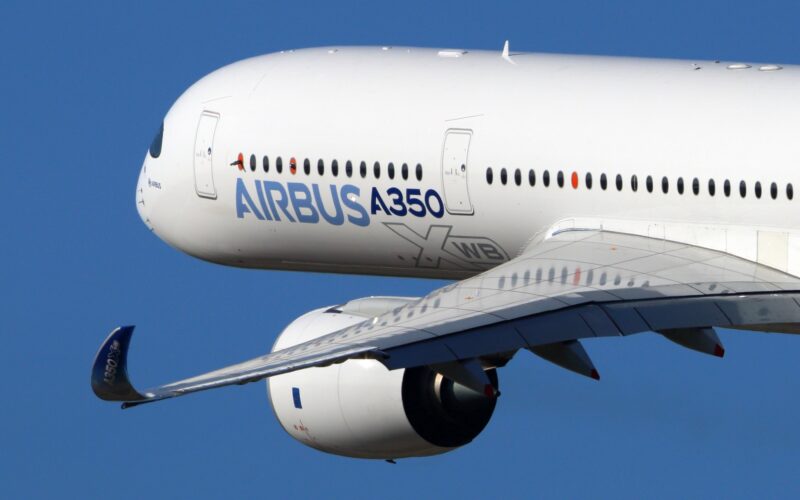Further details have come to light regarding a Cathay Pacific Airbus A350 engine fire that resulted in 86 A350-1000 aircraft facing mandatory inspection, after Hong Kong’s Air Accident Investigation Authority (AAIA) published a preliminary report into the incident.
Following the release of the AAIA’s report, the European Aviation Safety Agency subsequently issued an updated Airworthiness Directive (AD), potentially requiring some A350-900s to undergo checks.
On September 2, 2024, the Cathay Pacific Airbus A350-1000’s second engine experienced a fire. On September 19, 2024, the AAIA said that, on inspection of the engine, a “steel braided sheath of the fuel hose connecting to the No.17 fuel spray nozzle had a rupture, evidenced by a discernible hole in the hose”.
The AAIA also declared that black soot was found on the rear of the damaged engine and “burn marks were also noted on the underside of the two thrust reverser cowls”.
Five additional secondary fuel manifold hoses were also found to have either frayed metal braids or collapsed structures inside the hose.
“Further inspection suggested that fuel directed to the fuel spray nozzle could leak through the ruptured secondary fuel manifold hose. Coupled with other contributing factors, such as the presence of oxygen and an ignition (heat) source, this could result in a fire that could spread to the surrounding area,” the AAIA report added.
The preliminary report concluded that, if the issue was not addressed, it could escalate into a more serious engine fire, potentially causing serious damage to the aircraft.
On September 2, 2024, Cathay Pacific initiated a fleet-wide inspection of all 30 Airbus A350-900s and 18 A350-1000s after the airline identified an engine component failure on an aircraft destined for Zurich.
On that date, the A350 (flight CX383) that triggered mass inspections left Hong Kong for a 12-hour flight to Europe, but the aircraft returned to its departure airport after only 75 minutes’ flight time.
EASA issues updated Airworthiness Directive
On September 19, 2024, EASA issued an updated Airworthiness Directive, supplementary to that requiring the entire A350-1000 fleet to be checked following the Cathay Pacific fire.
Explaining the updated AD, EASA said that a “specific cleaning process available during engine refurbishment may lead to fuel manifold main fuel hose degradation”.
It added that Trent XWB-84 engines, used on the smaller A350-900, “were also the subject of the suspect cleaning process, and therefore are potentially affected by the unsafe condition”.
Additionally, it was determined that Trent XWB-75, Trent XWB-79, Trent XWB-79B engines may also have been subject to the cleaning process.
Prompted by the finding, the compromised cleaning process was discontinued and the process of inspecting some A350-900 engines commenced.
The checks include aircraft with Trent XWB engines having “accumulated 18 500 engine flying hours (EFH) or more since new and that have had 2 or more previous shop visits”.
They will also be required for engines having “accumulated 2 300 engine flying cycles (EFC) or more since new and that have had 2 or more previous shop visits”, or engines fitting neither of the above two conditions, but which have needed a previous shop visit.
In a statement to Aviation Week, Rolls Royce said: “To support the ongoing investigation following flight CX383, we have agreed with EASA to instruct a small number of our customers to carry out precautionary inspections of high-pressure fuel hoses on a limited number of Trent XWB-84 engines.”
The company added that the checks “are being prioritized based upon the life of the engine and those that have visited a specific MRO facility”.
The AAIA’s investigation of the incident continues, and a full report will be published in due course.

